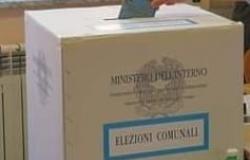
A press conference on electoral matters took place this morning in the Prefecture of Asti to illustrate the rules and obligations required for the European, regional and municipal elections which will be held on 8 and 9 June. The meeting, promoted by the Prefect Claudio Ventrice, was attended by Barbara Buffa, Vice Prefect, who provided the main new elements relating to the upcoming consultations while Paolo Mastrocola, Head of the Provincial Electoral Office, focused on the methods of expressing the vote at European elections for off-campus students. The list of municipalities in the province of Asti affected by the renewal of the council bodies, amounting to 86, was also distributed and the deadlines of interest were highlighted with regards to the presentation of the lists and candidates for Mayor in the respective municipalities.
The voters, referring to 31 January 2024, are a total of 176,049 (85,797 males and 90,252 females), of which 59,596 in the capital (28,149 males and 31,447 females). Elections that will see some important innovations. The polling stations will be set up at 9am on Saturday, for the authentication and stamping of the voting cards. Voting operations will also take place on Saturday, from 3pm to 11pm and on Sunday from 7am to 11pm. The counting will begin after the closing of voting operations with the European election ballot papers; it will continue at 2pm on Monday with the regional ones and then with the municipal ones.
Another innovation will concern the exercise of the right to vote by students away from home for the European elections. Furthermore, the third term limit for mayors of municipalities with up to 5000 inhabitants has been abolished; the application of the third mandate limit for municipalities from 5001 to 10000 inhabitants has been envisaged, in place of the current two mandates. In the case of a single list presented, the election for the renewal of the municipal bodies is valid only if the following two quorums are reached: number of voters not less than 40% of those entitled to vote, excluding voters resident abroad who did not vote; number of valid votes reported by the list of no less than 50% of voters.
How non-resident students will vote in the European elections
On the occasion of the next European elections, voters who for study reasons are in a municipality in a region other than that of the municipality of electoral registration for a period of at least three months in which the election date falls are eligible to vote away from home. There are two ways of exercising off-site voting: if the municipality of temporary domicile is located in the same electoral district as the municipality of residence, off-site students vote in the ordinary sections of the municipality of temporary domicile. In this case, the municipality of temporary domicile will provide the electoral section with a list of non-resident students admitted to vote in the same section; if the municipality of temporary domicile is located in an electoral district different from that to which the municipality of residence belongs, non-resident students vote in special sections established in the capital municipality of the region to which the municipality of temporary domicile belongs. In this case, the vote is expressed for the lists and candidates of the electoral constituency to which they belong, i.e. for the lists and candidates of the electoral constituency in which the municipality of residence is located.
To be able to vote “out of office”, interested parties must submit a specific application to the municipality in whose electoral lists they are registered, according to a specific form, indicating the complete address of their temporary domicile and, where possible, a email delivery. The application must also attach a copy of a valid identification document; copy of the personal electoral card; copy of the certification or other documentation certifying enrollment at a school, university or training institution.
The application can be submitted personally by the interested party, or through the use of electronic tools or through a delegated person no later than Sunday 5 May 2024. The application for admission to off-site voting can be revoked in the same way by Wednesday 15 May 2024. By Monday 20 May 2024, the municipality of residence verifies the applicant’s possession of the right to actively vote, communicating this to: the municipality of temporary domicile, for non-resident voters temporarily domiciled in the same electoral district in which the municipality of residence falls ; to the capital municipality of the region in which the municipality of temporary domicile is located, for out-of-town voters temporarily domiciled in an electoral constituency other than their own.
By Tuesday 4 June 2024, the municipality recipient of the above-mentioned communication (municipality of temporary domicile, or capital municipality of the region in which the municipality of temporary domicile is located) issues to the non-resident voter a certificate of admission to vote with the indication of the number and address of the section at which to vote. The certificate can also be issued through the use of electronic tools and the interested party must show it at the polling station in order to be admitted to vote, together with the identification document and the electoral card.
Identification and admission to vote of non-residents
Regarding the methods of identification and admission to vote, general rules apply.
In particular, off-site students vote after personal identification and presentation of the electoral card, on which the section stamp and the voting date must be affixed. Furthermore, the president of the section, before delivering the ballot paper to the student who presents himself to vote, must examine the certificate issued by the municipality of temporary domicile or by the regional capital municipality, checking whether the section in which the student presents himself vote corresponds to that indicated in the certificate itself; affix on the aforementioned certificate the annotation “he voted”, his signature, the date and the section stamp, to prevent the voter from being admitted to vote again for the European consultations.
The exercise of out-of-office voting for the election of the members of the European Parliament due to Italy does not preclude the interested party from exercising the right to vote in their own municipality of electoral registration for any further combined consultations (regional and municipal). Off-site students temporarily domiciled in a region other than that in which the municipality of electoral registration is located are entitled to the current travel concessions from the municipality of temporary domicile to the regional capital and return for the exercise of the right to vote at the special assignment section.
THE LIST OF THE MUNICIPALITIES OF THE ASTIGIAN MUNICIPALITIES WHERE THE LOCAL ADMINISTRATIONS ARE RENEWED – (PDF)
Tags: Prefecture Asti explains news European elections voting methods nonresident students





